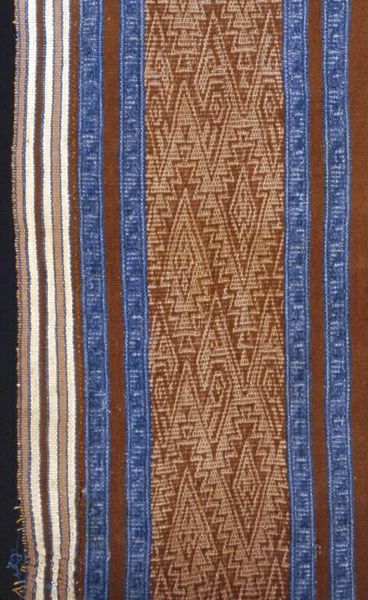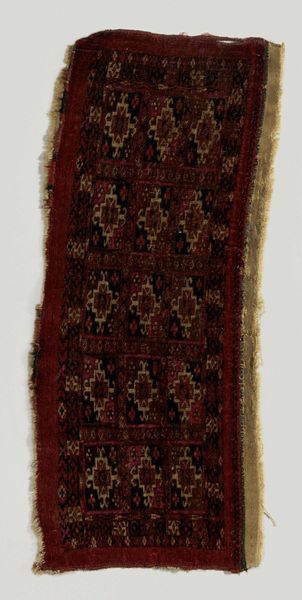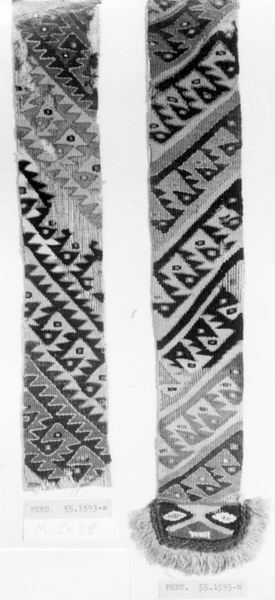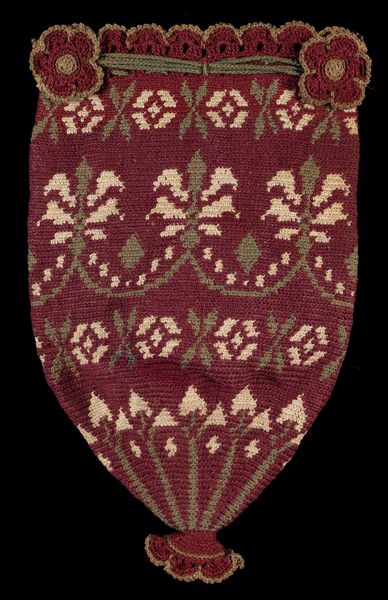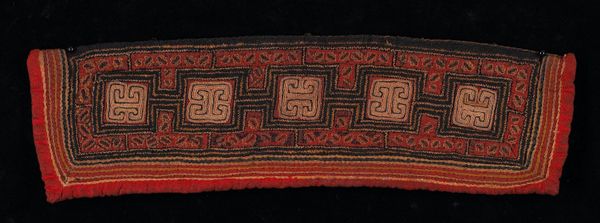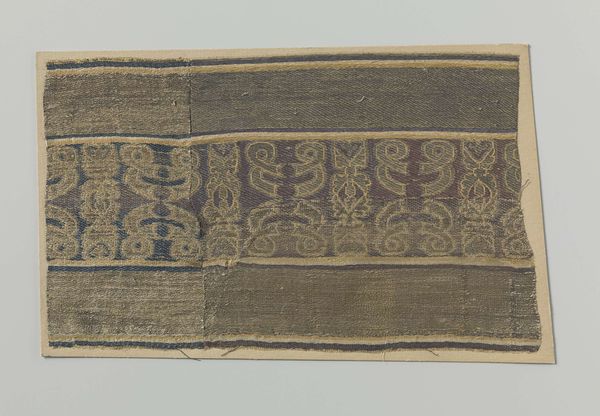
weaving, textile
#
natural stone pattern
#
textured surface
#
detailed texture
#
weaving
#
textile
#
geometric pattern
#
abstract pattern
#
repetitive shape and pattern
#
minimal pattern
#
geometric
#
repetition of pattern
#
pattern repetition
#
layered pattern
#
indigenous-americas
Dimensions: 31.1 × 3.5 cm (12 1/4 × 1 3/8 in.)
Copyright: Public Domain
Curator: Looking at this Fragment, entitled "Headband or Belt," one immediately senses a powerful ordering principle. Editor: I agree, there’s something deeply satisfying about the controlled rhythm here. It feels almost meditative, in its repetition. Curator: Exactly. It comes from the Inca culture and was probably woven between 1476 and 1532 using wool. What strikes me is how such precise geometry exists in a woven medium. The patterns speak to a highly structured belief system, perhaps reflecting social hierarchies or cosmology. Editor: The variations, however subtle, are critical. Notice how the central band’s motifs differ from those on the sides. It prevents the overall structure from becoming monotonous; rather, they generate dynamic tension within the composition. It really guides the eye. Curator: Absolutely. We often see geometric patterns like this in indigenous cultures. What I find so evocative is thinking about how textiles held significant cultural value, encoding ancestral narratives or communicating status. This isn't just ornamentation. It's memory, woven into form. Editor: And I wonder how the constraints of weaving itself influence the patterns? Is this a purely aesthetic decision, or did the very act of interlacing fibers guide these shapes into existence? Curator: That's a brilliant point. The medium becomes an active participant, shaping the message. These textiles likely played roles in rituals or ceremonies too. Editor: It's true; these objects resonate beyond just their visual qualities. They give tangible form to human ideas and systems, in their structure and materiality. It all generates such depth in the textile, somehow. Curator: Thinking about the enduring legacy of symbolic expression found in this artifact resonates beyond time. The language of symbols never stops revealing itself. Editor: I find myself drawn back to the weave. What can we uncover by looking closely at its structures of connection? It all really is compelling.
Comments
No comments
Be the first to comment and join the conversation on the ultimate creative platform.

